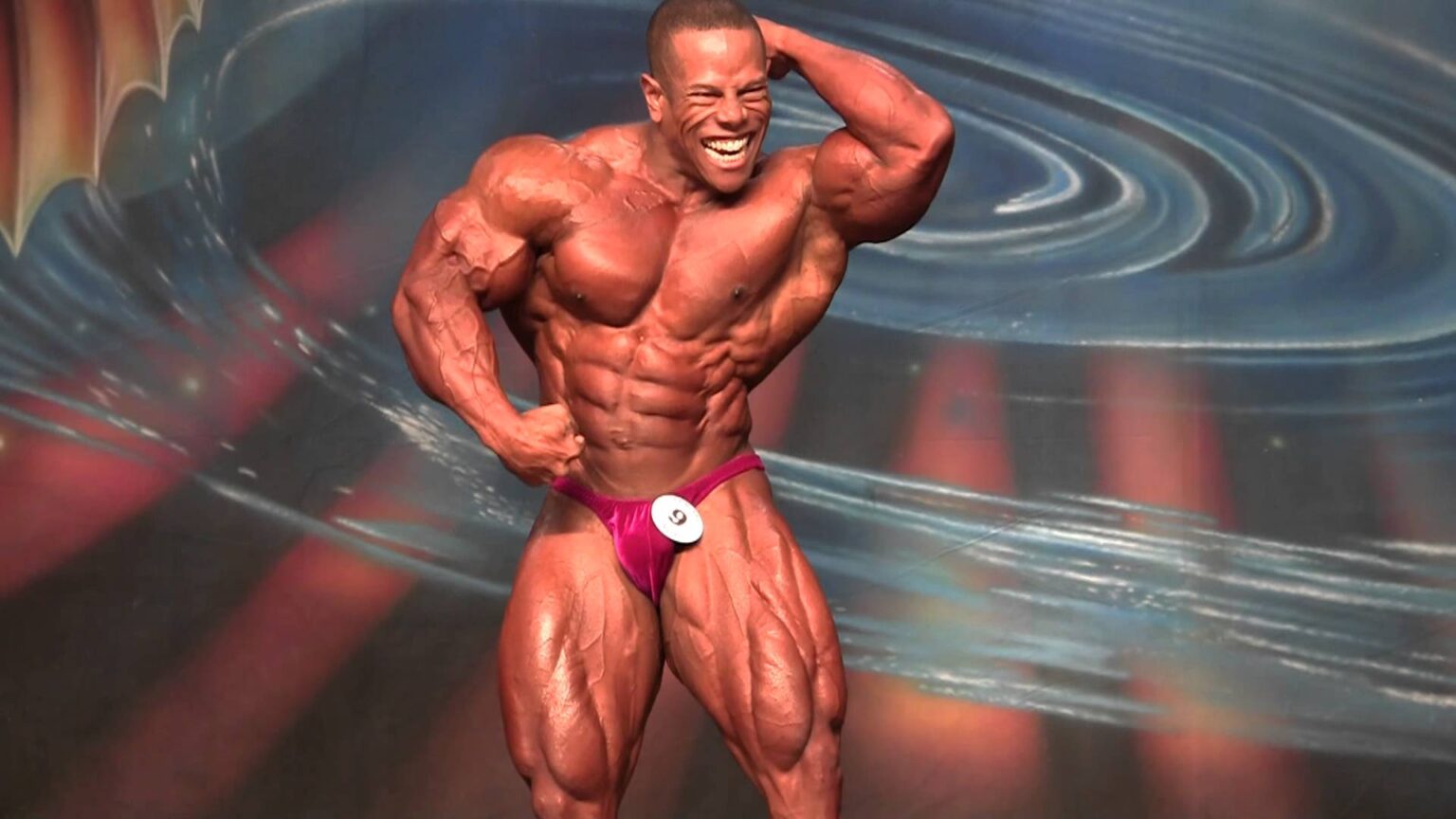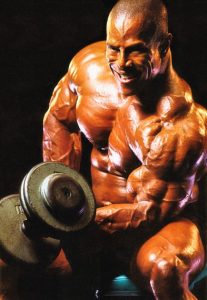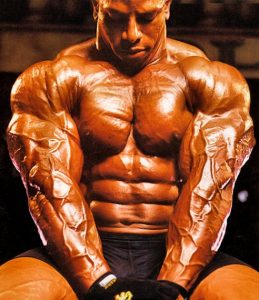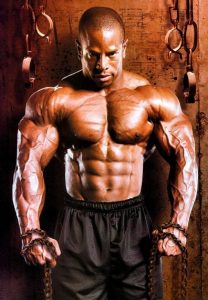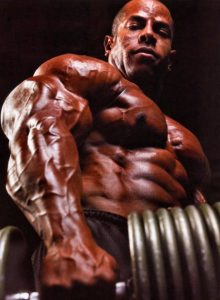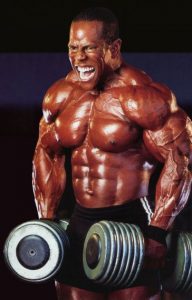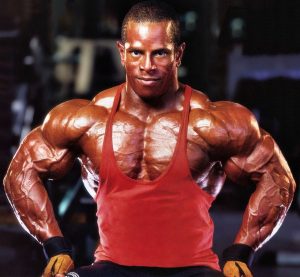David Henry was born on February 24, 1975 in Aurora, Colorado, at the Fitzsimmons Army Medical Center. David’s parents are military men. Father is a military pilot, his mother is a member of the Air Force Base Commissariat. Dave’s childhood was spent in the suburbs of San Antonio. From early childhood, Henry was fond of athletics, and by the age of 17 began bodybuilding training under the impression of the movie “Pumping Iron.” A year later he already performed and won at his first amateur competitions, held by the company “Muscle Tech”. For the first time in a serious tournament, David appeared in 2001 – it was the Nationals (NPC), where he took 11th place in the middleweight category. In 2002, Henry became second in the “US Championship” and first at the “Nationals”. The first tournament in the professional IFBB league was “Florida Pro” in 2004, where David Henry became the 10th.
In 2005, David first took part in the tournament “Mr. Olympia” and immediately took 1st place in the category to 92 kg, and the 14th place in the overall standings. From this moment he did not miss any “Olympia”, except for 2011, this year he did not compete at all. The break was related to his professional activities. Sergeant David Henry is a US Air Force dispatcher, his job is to equip combat aircraft with weapons. In 2011, in connection with the intervention of NATO troops in Libya, David took part in the operations of the US Army.
In 2012, he took the first place in the tournament “Europe Supershow.” At the 2012 Olympics and 2013, Henry was second, behind James Lewis.
At the age of 17, David began to work on the principle of “the more, the better”, but this gave him very little return. “I could endure this daily torture if I saw progress, but it was not there,” he recalls. Next were experiments with the “Heavy Duty” system of Mike Mentzer. With regard to the Mentzer system, Dave said in an interview: “Everyone says they like the principles of the Mentzer, but they prefer to observe how others do it, I reduced the amount of work to one approach for each part of the body and go to the gym only 3 days And I’m growing up like a madman! “ At the heart of Dave’s training is working with submaximal weights in 4-6 repetitions for large muscle groups and in 8-10 repetitions for small ones. In 2004, David Henry met Dante Trudel and began to practice his “Doggcrapp Training” system, which is also based on working with submaxis scales. The basis of the system is one set with two intermediate pauses in 15 breaths-exhalations between them, and the subsequent extreme stretching of the muscle fibers within 60-90 seconds to elongate the muscular fascia. According to Henry himself, since July 2004 he had the greatest muscle growth. But he emphasizes that this system is only for advanced athletes, whose experience is not less than 6 years of continuous training. By the way, the magazine “FLEX” included David Henry in the TOP-10 most heavily trained athletes of all times, placing him on the seventh position.
Genetic feature of David Henry is a low percentage of subcutaneous fat, which allows him not to particularly restrict himself in the diet. In the off-season, he excludes morning reception of carbohydrates on weekdays, at weekends he eats without restrictions, these days the caloric content of his diet can jump to 7-10 thousand kcal. However, 4 weeks before the competition, Dave stops “feasting” on weekends, and carbohydrates begin to vary: one day they can consume a large number of them, the second day – the average, the third day – the minimum. And, there are no two identical days and any system in their alternation. In the off-season, Henry uses 350-400 grams of protein a day. In the last 4 weeks before the tournament, protein intake is gradually increasing.
David Henry is the only athlete who successfully combines the career of a professional bodybuilder with the service in the US Armed Forces. The army provides it financially and guarantees a pension, which is not available for professional bodybuilders. The specifics of the post allows Dave to leave for competitions and guest poses. However, the service has its drawbacks: Henry had to travel to hot spots, often change places of residence, skip competitions, take breaks in the training schedule.
Now David Henry lives in Tucson, Arizona, where he has his own gym.

